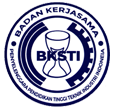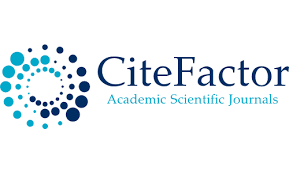Optimizing the Process Parameters for Eco-Friendly Minimum Quantity Lubrication-Turning of AISI 4340 Alloy with Nano-Lubricants Using a Grey Wolf Optimization Approach
Abstract
Optimization of turning process parameters in minimum quantity lubrication (MQL)-assisted mode is obligatory for enhanced efficiency and product integrity. However, little attention has been paid to analyzing situations where high search precision is needed when evaluating the optimal turning process parameters. This article applies the grey wolf optimization (GWO) approach to optimize the turning of parameters AISI 4340 alloy to enhance cutting force, surface roughness and tool wear. Based on the literature data, turning was conducted with MQL-assisted CuO and Al2O3 nanofluids. The problem was formulated by mimicking six wolves in six different objective functions. The objective functions have the responses as the dependent variables and the parameters including cutting speed, feed and cutting depth as independent variables. The hunting behavior of the wolves as they encircle the prey is interpreted to the machining task optimization. It involves three hierarchically-evaluated guides- the alpha, beta and delta wolves- positioned optimally and other wolves are updated accordingly. The cutting speed, feed and cutting depth are bound in the lower and upper limits as 80 and 140m/min, 0.05 and 0.20m/m/rev and 0.1 and 0.4mm, respectively. The grey wolf optimization algorithm optimizes the parameters to yield the cutting force, surface roughness and tool wear using Al2O3 as 199.50N, -23.54mm and 0.06mm, respectively. For the CuO, the corresponding cutting force, surface roughness and tool wear, the CuO, Al2O3 and CuO nano lubricants produced the best results. However, for mass production, selective use of CuO and Al2O3 should be made. The usefulness of this research endeavor is to help process engineers to make decisions in producing low-cost components in manufacturing.
Keywords
Full Text:
PDFReferences
Ahmadi, M.H., Mohseni-Gharyehsafa, B., Farzaneh-Gord, M., Jilte, R.D., Kumar, R. & Chau, K.-W. (2019) Applicability of Connectionist Methods to Predict Dynamic Viscosity of Silver/Water Nanofluid by Using ANN-MLP, MARS and MPR Algorithms. Engineering Applications of Computational Fluid Mechanics, 13, 220–228. https://doi.org/10.1080/19942060.2019.1571442
Al-Shayea, A., Abdullah, F. M., Noman, M. A., Kaid, H., &Abouel Nasr, E. (2020). Studying and Optimizing the Effect of Process Parameters on Machining Vibration in Turning Process of AISI 1040 Steel. Advances in Materials Science and Engineering. 2020, 1-15. https://doi.org/10.1155/2020/5480614
Bhuiyan, M.S.H. and Choudhury, I.A. (2015).Investigation of Tool Wear and Surface Finish by Analyzing Vibration Signals in Turning Assab-705 Steel. Machining Science and Technology. 19, 236–261.
Bouacha, K., Yallese, M.A., Mabrouki, T., Rigal, J.-F. (2010) Statistical Analysis of Surface Roughness and Cutting Forces using Response Surface Methodology in Hard Turning of AISI 52100 Bearing Steel with CBN Tool. International Journal of Refractory Metals and Hard Materials, 28, 349–361. https://doi.org/10.1016/j.ijrmhm.2009.11.011
Das, S.R., Panda, A., Davim, J.P., Dhupal, D. (2018). Hard Turning of HSLA Steel with Coated Ceramic Tool Based on Evaluation of Surface Roughness, Tool Wear, Chip Morphology and Economic Analysis. Journal of Manufacturing Technology Management, 10, 113–141.
El-Sheikh, A.H., AbdElaziz, M., Das, S.R., Muthuramalingam, T., Lu, S., 2021. A New Optimized Predictive Model Based on Political Optimizer for Eco-Friendly MQL-Turning of AISI 4340 Alloy with Nano-Lubricants. Journal of Manufacturing Processes, 67, 567-578. https://doi.org/10.1016/j.jmapro.2021.05.014
El-Baradie, M. A. (1996). Cutting Fluids, Part 1: Characterization. Journal of Material Processing Technology, 56, 786–787. https://doi.org/10.12691/ajmse-3-2-3
Fan, Y.,Hao, Z., Zheng, M. & Yang, S. (2016). Wear Characteristics of Cemented Carbide Tool in Dry-Machining Ti-6Al-4V. Machining Science and Technology: An International Journal, 20(2), 249-261. https://doi.org/10.1080/10910344.2016.1165837
Gajrani, K.K., Suvin, P.S., Kailas, S.V., Mamilla, R.S. (2019). Thermal, Rheological, Wettability and Hard Machining Performance of MoS2 and CaF2 Based Minimum Quantity Hybrid Nano-Green Cutting Fluids, Journal of Materials Processing Technology, 266, 125-139. https://doi.org/10.1016/j.jmatprotec.2018.10.036
Jayakumar, N., Subramanian, S., Ganesan, S., Elanchezhian, E.B. (2016). Grey Wolf Optimization for Combined Heat and Power Dispatch with Cogeneration Systems. International Journal of Electrical Power & Energy Systems. 74, 252–264. https://doi.org/10.1016/j.ijepes.2015.07.031
Kelly, T.P., 2010, Optimization, an Important Stage of Engineering Design. The Technology Teacher, 69(5), 18-23.
Khalilpourazari, S., & Khalilpourazary, S. (2016).Optimization of Production Time in the Multi-Pass Milling Process via a Robust Grey Wolf Optimizer. Neural Computing and Applications, 29(12), 1321-1336. https://doi.org/10.1007/s00521-016-2644-6
Kharwar, P. K., & Verma, R. K. (2021). Nature Instigated Grey Wolf Algorithm for Parametric Optimization During Machining (Milling) of Polymer Nano Composites. Journal of Thermoplastic Composite Materials, 089270572199320. https://doi.org/10.1177/0892705721993202
Kumar, R., Sahoo, A.K., Mishra, P.C., Das, R.K. (2019). Influence of Al2O3 and TiO2 Nanofluid on Hard Turning Performance. International Journal of Advanced Manufacturing Technology, 1– 16. https://doi.org/10.1007/s00170-019-04754-3
Labidi, A., Tebassi, H., Belhadi, S., Khettabi, R. & Yallese, M.A. (2018). Cutting Conditions Modeling and Optimization in Hard Turning using RSM, ANN And Desirability Function. Journal of Failure Analysis and Prevention, 18, 1017–1033. https://doi.org/10.1007/s11668-018-0501-x
Laouissi, A., Yallese, M.A., Belbah, A., Belhadi, S. & Haddad, A. (2019). Investigation, Modeling, and Optimization of Cutting Parameters in Turning of Gray Cast Iron using Coated and Uncoated Silicon Nitride Ceramic Tools Based on ANN, RSM and GA Optimization. International Journal of Advanced Manufacturing Technology, 101, 523–548. https://doi.org/10.1007/s00170-018-2931-8
Manivel, D., & Gandhinathan, R. (2016). Optimization of Surface Roughness and Tool Wear in Hard Turning of Austempered Ductile Iron (Grade 3) using Taguchi Method. Measurement. 93, 108-116. https://doi.org/10.1016/j.measurement.2016.06.055
Mirjalili S., Marjalili S.M. and Lewis A., 2014, Grey Wolf Optimiser, Advances in Engineering software, 69, 46-61. http://doi.org /10.1016/j adveng soft.2013.12.007
Medjahed, S.A., Saadi, T.A., Benyettou, A., Ouali, M. (2016). Gray Wolf Optimizer for Hyperspectral Band Selection. Applied Soft Computing, 40, 178–186. https://doi.org/10.1016/j.asoc.2015.09.045 11
Onuoha, O. J., Abu, J. O., Lawal, S. A., Mudiare, E., & Adeyemi, M. B. (2016). Determining the Effect of Cutting Fluids on Surface Roughness in Turning AISI 1330 Alloy Steel using Taguchi Method. Modern Mechanical Engineering. 6(2), 51-59. https://doi.org/10.4236/mme.2016.62006
Padmini, R., Krishna, P.V., Rao, G.K.M., (2016). Effectiveness of Vegetable Oil Based Nanofluids as Potential Cutting Fluids in Turning AISI 1040 Steel. Tribology International, 490–501. https://doi.org/10.1016/j.triboint.2015.10.006
Pradhan, M., Roy, P.K., Pal, T. (2016). Grey Wolf Optimization Applied to Economic Load Dispatch Problems. International Journal of Electrical Power & Energy Systems, 83, 325–334. https://doi.org/10.1016/j.ijepes.2016.04.034.
Reddy, S. A., &Hari, M. J. (2018). Optimization of Cutting Parameters in Turning Operation by using Taguchi Method. International Journal of Trend in Scientific Research and Development, 3(1), 935-940. https:/z/doi.org/10.31142/ijtsrd19108
Roy, R. (1990). A Primer on the Taguchi Method. Society of Manufacturing Engineers, New York
Roy, S., Kumar, R., Das, R. K., & Sahoo, A. K. (2018). A Comprehensive Review on Machinability Aspects in Hard Turning of AISI 4340 Steel. IOP Conference Series: Materials Science and Engineering, 390, 012009. https://doi.org/10.1088/1757-899x/390/1/012009
Sahoo, A. K. and Sahoo, B. (2012). Experimental Investigations on Machinability Aspects in Finish Hard Turning of AISI 4340 Steel using Uncoated and Multilayer Coated Carbide Inserts, Measurement. 45, 2153-2165. https://doi.org/10.1016/j.measurement.2012.05.015
Sen, B., Mandal, U. K., & Mondal, S. P. (2017). Advancement of an Intelligent System Based on ANFIS for Predicting Machining Performance Parameters of Inconel 690–A Perspective of Metaheuristic Approach. Measurement, 109, 9-17. https://doi.org/10.1016/j.measurement.2017.05.050
Sen, B., Mia, M., Krolczyk, G. M., Mandal, U. K., & Mondal, S. P. (2021). Eco-Friendly Cutting Fluids in Minimum Quantity Lubrication Assisted Machining: A Review on the Perception of Sustainable Manufacturing. International Journal of Precision Engineering and Manufacturing-Green Technology, 8(1), 249-280. https://doi.org/10.1007/s40684-019-00158-6
Sen, B., Mia, M., Mandal, U. K., & Mondal, S. P. (2020). Synergistic Effect of Silica and Pure Palm Oil on the Machining Performances of Inconel 690: A Study for Promoting Minimum Quantity Nano Doped-Green Lubricants. Journal of Cleaner Production, 258, 120755. https://doi.org/10.1016/j.jclepro.2020.120755
Sen, B., Hussain, S. A. I., Mia, M., Mandal, U. K., & Mondal, S. P. (2019a). Selection of an Ideal MQL-Assisted Milling Condition: An NSGA-II-Coupled TOPSIS Approach for Improving Machinability of Inconel 690. The International Journal of Advanced Manufacturing Technology, 103(5), 1811-1829. https://doi.org/10.1007/s00170-019-03620-6
Sen, B., Mia, M., Gupta, M. K., Rahman, M. A., Mandal, U. K., & Mondal, S. P. (2019b). Influence Of Al2O3 and Palm Oil–Mixed Nano-Fluid on Machining Performances of Inconel-690: IF-THEN Rules–Based FIS Model in Eco-Benign Milling. The International Journal of Advanced Manufacturing Technology. 103(9), 3389-3403. https://doi.org/10.1007/s00170-019-03814-y
Sen, B., Mia, M., Mandal, U. K., Dutta, B., & Mondal, S. P. (2019c). Multi-Objective Optimization for MQL-Assisted End Milling Operation: An Intelligent Hybrid Strategy Combining GEP and NTOPSIS. Neural Computing and Applications. 31(12), 8693-8717. https://doi.org/10.1007/s00521-019-04450-z
Shankar S., Mohanraj T., Rajasekar R., 2019, Prediction of Cutting Tool Wear during Milling Process using Artificial Intelligence Techniques. International Journal of Computer Integrated Manufacturing 32(2), 174-182. https://doi.org/10.1080/0951192X.2018.1550681
Srikant, R. R., Rao, D. N., Subrahmanyam, M. S., & Krishna, V. P. (2008). Applicability of Cutting Fluids with Nanoparticle Inclusion as Coolants In Machining. Proceedings of the Institution of Mechanical Engineers, Part J: Journal of Engineering Tribology, 223(2), 221-225. https://doi.org/10.1243/13506501jet463
Venkatesan, K., Mathew, A. T., Devendiran, S., Ghazaly, N. M., Sanjith, S., & Raghul, R. (2019). Machinability Study and Multi-Response Optimization of Cutting Force, Surface Roughness and Tool Wear on CNC Turned Inconel 617 Superalloy using Al2O3 Nanofluids in Coconut Oil. Procedia Manufacturing. 30, 396-403. https://doi.org/10.1016/j.promfg.2019.02.055
Yadav, P., Kumar, N. 2020, A Review on Selection of Input Decision Variables and Response Variables of Machining Process by using Optimization Techniques. Suresh Gyan, Vihar University Journal of Engineering and Technology, 6(1), 26-29.
Yıldırım, Ç. V. (2020). Investigation of Hard Turning Performance of Eco-Friendly Cooling Strategies: Cryogenic Cooling and Nanofluid Based MQL. Tribology International, 144, 106127. https://doi.org/10.1016/j.triboint.2019.106127
Zerti, A., Yallese, M.A., Zerti, O., Nouioua, M., Khettabi, R. (2019) Prediction of Machining Performance using RSM and ANN Models in Hard Turning of Martensitic Stainless Steel AISI 420. Proceedings of IMechE, Part C: Journal of Mechanical Engineering Science, 13, 233. https://doi.org/10.1177/0954406218820557
DOI: http://dx.doi.org/10.22441/ijiem.v3i3.15519
Refbacks
- There are currently no refbacks.

This work is licensed under a Creative Commons Attribution-NonCommercial 4.0 International License.
IJIEM - Indonesian Journal of Industrial Engineering & Management
Program Pascasarjana Magister Teknik Industri Universitas Mercu Buana
Kampus Menteng - Gedung Tedja Buana, Floor 4th
Jl. Menteng Raya No. 29 Jakarta Pusat- Indonesia
Tlp.: +62 21 31935454 Fax: +62 21 31934474
http://publikasi.mercubuana.ac.id/index.php/ijiem
Email: [email protected]

This work is licensed under a Creative Commons Attribution-NonCommercial 4.0 International License.
The journal is indexed by:






1.png)
.png)
.png)
.png)







